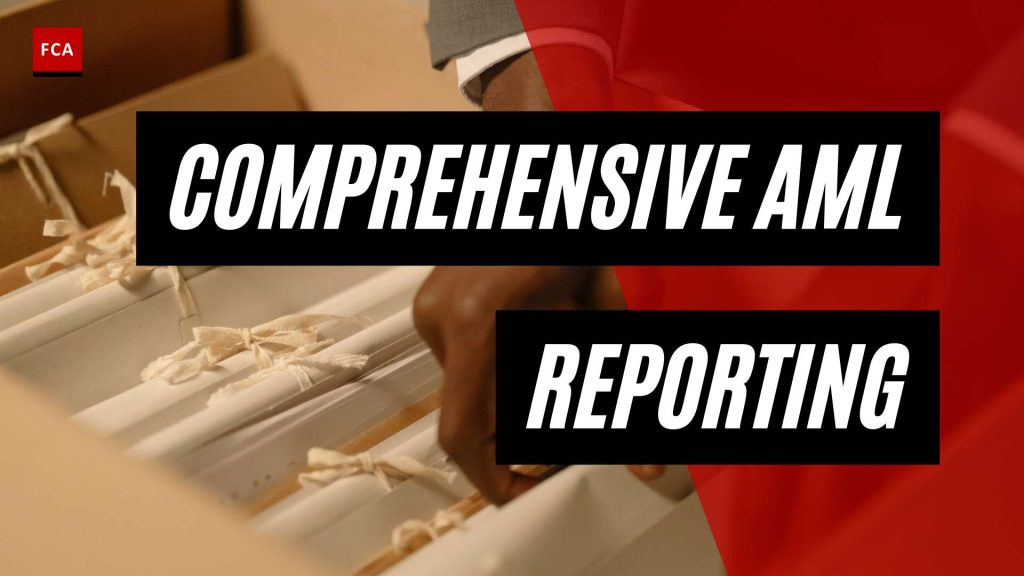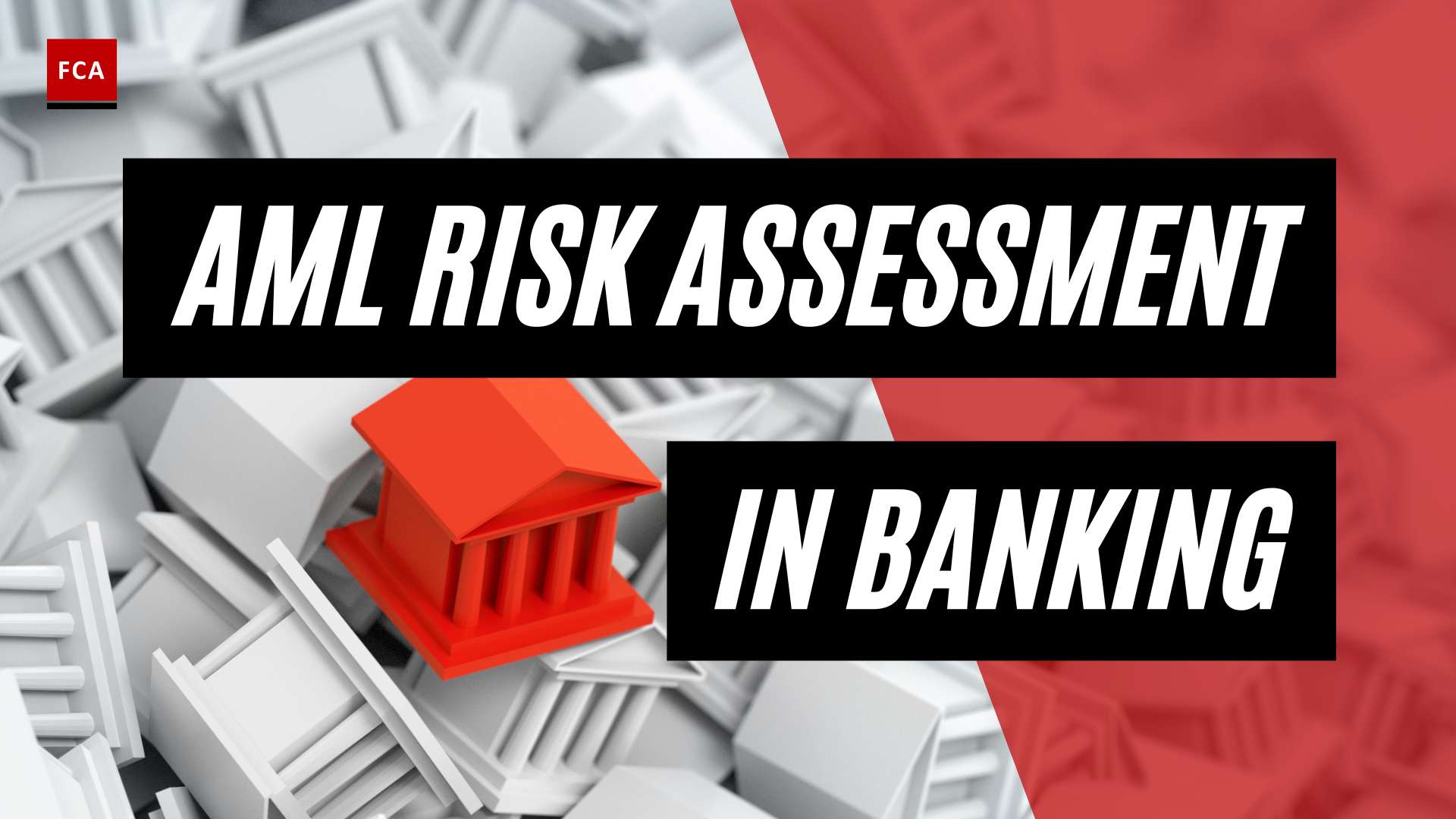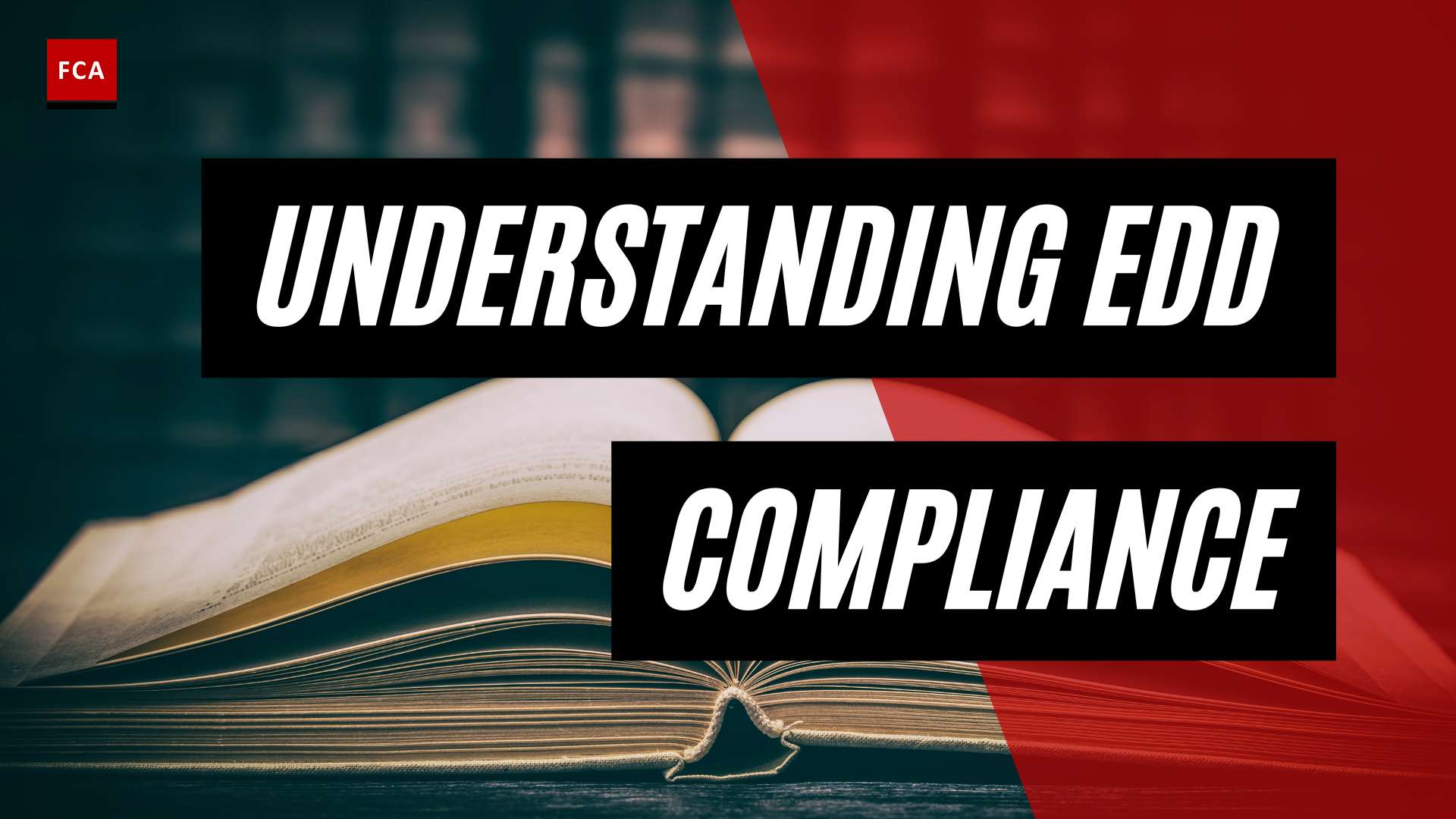Understanding AML Regulatory Reporting
In the realm of anti-money laundering (AML), regulatory reporting plays a vital role in combating financial crimes and ensuring compliance with global guidelines and regulations. This section will delve into the importance of AML regulatory reporting and the role of AML reporting solutions in facilitating this process.
Importance of AML Regulatory Reporting
AML regulatory reporting is crucial for financial institutions and other regulated entities to fulfill their compliance obligations and mitigate the risks associated with money laundering and terrorist financing. By reporting suspicious activities and transactions to the appropriate authorities, these entities contribute to maintaining the integrity of the global financial system.
Regulatory reporting requirements serve several important purposes:
-
Detection and Prevention of Financial Crimes: AML regulatory reporting helps identify potential money laundering activities and suspicious transactions. By reporting these activities to the relevant authorities, financial institutions can contribute to the detection and prevention of financial crimes.
-
Transparency and Accountability: AML regulatory reporting promotes transparency and accountability within the financial sector. It ensures that financial institutions are held responsible for their actions and have a clear record of their compliance efforts.
-
Data Analysis and Intelligence: The data collected through AML regulatory reporting provides valuable insights and intelligence for law enforcement agencies, regulators, and financial institutions. It enables the identification of trends, patterns, and emerging risks, facilitating more effective anti-money laundering strategies.
-
International Cooperation: AML regulatory reporting helps foster international cooperation in combating money laundering and terrorist financing. It allows for the exchange of information between jurisdictions and enables collaborative efforts to tackle cross-border financial crimes.
-
Maintaining Trust and Reputation: By complying with AML regulatory reporting requirements, financial institutions demonstrate their commitment to combating financial crimes. This helps maintain trust and confidence in the financial system, both domestically and internationally.
Role of AML Reporting Solutions
To effectively fulfill AML regulatory reporting requirements, financial institutions often rely on AML reporting solutions. These solutions offer automated processes, standardized templates, and robust functionalities to streamline and enhance the reporting process.
AML reporting solutions, such as those provided by Oracle, play a crucial role in supporting financial institutions in their compliance efforts. These solutions offer automation and out-of-the-box templates to help stay compliant with global anti-money laundering reporting guidelines and regulations. They aid in the generation and filing of Suspicious Activity Reports (SARs) and Suspicious Transaction Reports (STRs) (Oracle Financial Services).
The benefits of utilizing AML reporting solutions include:
-
Automation and Efficiency: AML reporting solutions automate data extraction from monitoring and investigation systems, significantly reducing the time needed to prepare, review, and finalize regulatory reports. They also offer electronic file creation and workflows for submission, increasing productivity and avoiding filing errors and repeat filings.
-
Cost Reduction and Compliance: By automating data exchange between investigations and the reporting process, AML reporting solutions help reduce compliance costs. They also provide capabilities for Currency Transaction Reporting and compliance with regulatory frameworks such as the Foreign Account Tax Compliance Act (FATCA), minimizing the impact on existing operations and architecture.
-
Standardization and Business Intelligence: AML reporting solutions address regulatory requirements by streamlining the compliance process and employing global standards for data capture. They offer preconfigured reports and dashboards for business intelligence and analytical reporting, facilitating research and providing insights into the effectiveness of financial crimes programs.
By leveraging AML reporting solutions, financial institutions can enhance their compliance efforts, streamline regulatory reporting processes, and improve their ability to detect and prevent financial crimes.
AML Regulatory Reporting Requirements
To ensure compliance with anti-money laundering (AML) regulations, financial institutions and other regulated entities must adhere to specific regulatory reporting requirements. These requirements are designed to combat money laundering, terrorist financing, and other financial crimes. Let’s explore some key components of AML regulatory reporting: global anti-money laundering guidelines, suspicious activity reports (SARs), and suspicious transaction reports (STRs).
Global Anti-Money Laundering Guidelines
Global anti-money laundering guidelines provide a framework for AML regulatory reporting across various jurisdictions. These guidelines establish the standards and procedures that financial institutions and other regulated entities must follow to detect and report suspicious activities.
Financial institutions typically rely on these guidelines to develop their internal AML programs and reporting processes. They outline the obligations and responsibilities of these entities in identifying and reporting suspicious transactions. Compliance with these guidelines ensures consistency and cooperation in the fight against money laundering on a global scale.
Suspicious Activity Reports (SARs)
Suspicious Activity Reports (SARs) play a crucial role in AML regulatory reporting. They are used to report any suspicious activities that may indicate potential money laundering or terrorist financing. Regulated entities, such as banks and financial institutions, are required to file SARs with the appropriate regulatory authorities, such as the Financial Crimes Enforcement Network (FinCEN) in the United States.
SARs typically include detailed information about the suspicious activity, such as the individuals or entities involved, the nature of the transactions, and any other relevant details. The filing of SARs enables authorities to investigate and take necessary actions to prevent illicit financial activities.
Suspicious Transaction Reports (STRs)
In addition to SARs, Suspicious Transaction Reports (STRs) are another component of AML regulatory reporting. STRs are similar to SARs but are specifically focused on suspicious transactions. These reports are used to flag and report transactions that appear unusual or suspicious in nature.
Regulated entities are responsible for monitoring transactions and identifying those that raise suspicion. Once identified, they must file STRs with the appropriate regulatory authorities, such as the Financial Transactions and Reports Analysis Centre of Canada (FINTRAC). STRs provide valuable information to authorities, assisting in the detection and prevention of financial crimes.
By adhering to global AML guidelines and reporting requirements, financial institutions and other regulated entities contribute to the overall effort of combating money laundering and terrorist financing. The timely filing of SARs and STRs ensures that suspicious activities are brought to the attention of the authorities, helping to maintain the integrity of the financial system.
For effective AML regulatory reporting, organizations often leverage AML reporting solutions that provide automation, efficiency, and standardization. These solutions, such as the ones offered by Oracle, aid in generating and filing SARs and STRs, thereby streamlining the reporting process and ensuring compliance with global AML regulations.
Benefits of AML Reporting Solutions
Implementing effective AML reporting solutions brings numerous benefits to organizations in terms of automation, efficiency, cost reduction, compliance, standardization, and business intelligence.
Automation and Efficiency
AML reporting solutions, such as those offered by Oracle Financial Services, leverage automation to streamline the reporting process. These solutions provide out-of-the-box templates and workflows that aid in the generation and filing of regulatory reports, including Suspicious Activity Reports (SARs) and Suspicious Transaction Reports (STRs). By automating data extraction from monitoring and investigation systems, these solutions significantly reduce the time needed to prepare, review, and finalize regulatory reports. This automation improves operational efficiency, increases productivity, and helps avoid filing errors and repeat filings.
Cost Reduction and Compliance
AML reporting solutions contribute to cost reduction by optimizing compliance processes. By automating data exchange between investigations and reporting, these solutions eliminate manual data entry tasks and reduce the risk of errors. Through the consolidation of Currency Transaction Reporting within a unified platform, organizations can better manage compliance requirements. Additionally, AML reporting solutions help organizations comply with regulations such as the Foreign Account Tax Compliance Act (FATCA), minimizing the impact on existing architecture and operations.
Standardization and Business Intelligence
Standardization is a key benefit of implementing AML reporting solutions. These solutions adhere to global anti-money laundering guidelines and regulations, ensuring compliance across key jurisdictions. By using standardized templates and capturing all required data, organizations can streamline the compliance process and meet reporting obligations consistently. Moreover, AML reporting solutions provide business intelligence through preconfigured reports and dashboards. These tools enable organizations to analyze data, identify trends, and gain insights into their financial crimes program’s effectiveness. This information helps in researching issues, identifying areas for improvement, and demonstrating compliance to regulatory authorities.
By leveraging AML reporting solutions, organizations can achieve automation, efficiency, cost reduction, compliance, standardization, and business intelligence. These benefits contribute to effective anti-money laundering practices and help organizations stay ahead in combating financial crimes while meeting regulatory reporting requirements.
AML Regulatory Reporting Authorities
When it comes to AML regulatory reporting, several authorities and resources play a vital role in ensuring compliance with anti-money laundering regulations. Let’s explore three important entities: FINRA, FDIC, and Oracle’s AML reporting solutions.
FINRA Reporting Requirements
For firms operating in the United States, the Financial Industry Regulatory Authority (FINRA) sets specific reporting requirements to combat money laundering. FINRA Gateway, a web-based platform, is specifically designed for member firms to access filings, run reports, and submit support tickets (FINRA). By leveraging FINRA Gateway, compliance professionals can efficiently meet their regulatory reporting obligations and stay updated on the latest AML guidelines.
FDIC Reporting Resources
The Federal Deposit Insurance Corporation (FDIC) offers an array of resources to support banks and financial institutions in fulfilling their regulatory reporting requirements. These resources include financial education materials, data tools, laws and regulations, and information on important initiatives. The FDIC is a significant source of U.S. banking industry research, providing quarterly banking profiles, working papers, and state banking performance data (FDIC). Additionally, the FDIC publishes regular updates on news, activities, announcements, speeches, and testimony related to banking issues and policy changes (FDIC).
Oracle’s AML Reporting Solutions
Oracle, a leading technology company, offers comprehensive AML reporting solutions that help organizations comply with global anti-money laundering reporting guidelines and regulations. These solutions provide automation and out-of-the-box templates, facilitating the generation and filing of Suspicious Activity Reports (SARs) and Suspicious Transaction Reports (STRs) (Oracle Financial Services).
By leveraging Oracle’s AML reporting solutions, firms can streamline their reporting processes, improve efficiency, and ensure compliance with regulatory requirements. These solutions offer advanced features, such as data analytics and reporting dashboards, to enhance the effectiveness of AML compliance programs. With the aid of Oracle’s technology, organizations can stay ahead of evolving AML regulations and maintain robust reporting practices.
By following the reporting requirements set by entities like FINRA, utilizing resources provided by the FDIC, and leveraging advanced AML reporting solutions like Oracle’s, organizations can meet their regulatory obligations and contribute to the global fight against money laundering. It is crucial for businesses to stay informed about the latest developments in AML regulatory reporting to effectively combat financial crime and protect the integrity of the financial system.
Consequences of Non-Compliance
When it comes to AML regulatory reporting, non-compliance can have significant consequences for financial institutions. Failure to adhere to the regulatory reporting requirements can lead to severe penalties, reputational damage, and impact on the financial system. It is crucial for organizations to prioritize AML regulatory compliance to mitigate these risks and ensure a strong anti-money laundering framework.
Penalties and Fines
Failure to comply with AML regulatory reporting requirements can result in significant penalties and fines. Regulators worldwide have imposed billions of dollars in fines on financial institutions for non-compliance with AML regulations. These fines serve as a deterrent and reflect the increased enforcement efforts to ensure anti-money laundering compliance. It is essential for financial institutions to allocate adequate resources and implement robust AML programs to avoid costly penalties and maintain compliance with AML guidelines (Sanction Scanner).
Reputational Damage
Non-compliance with AML regulations can lead to substantial reputational damage for financial institutions. The failure to detect and prevent money laundering and other financial crimes erodes public trust and confidence in the institution. Reputational damage can have long-lasting effects, resulting in a loss of customers, business opportunities, and partnerships. It is crucial for financial institutions to prioritize AML compliance and actively demonstrate their commitment to combating financial crimes to protect their brand and reputation (Sanction Scanner).
Impact on the Financial System
Non-compliance with AML regulations not only affects individual financial institutions but also has broader implications for the financial system as a whole. Money laundering and financial crimes can undermine the integrity and stability of the financial system, making it vulnerable to illicit activities. A failure to prevent money laundering can facilitate the financing of terrorism, drug trafficking, and other illegal activities. By prioritizing AML compliance and reporting, financial institutions contribute to the overall security and integrity of the financial system, safeguarding against the risks associated with money laundering and other financial crimes.
The severe consequences of non-compliance with AML regulations underscore the necessity for financial institutions to prioritize anti-money laundering compliance. By implementing effective AML programs, utilizing AML reporting solutions, and staying updated with regulatory requirements, companies can mitigate legal and reputational risks while upholding the integrity of the financial system (Sanction Scanner). It is crucial for organizations to recognize the importance of AML compliance, deploy appropriate AML software, and establish robust AML programs to safeguard against the risks of non-compliance, protect their reputation, and maintain public trust in the financial system.
Enhancing AML Compliance
To effectively combat money laundering and financial crimes, enhancing AML (Anti-Money Laundering) compliance is of utmost importance. Financial institutions must prioritize the implementation of robust measures to detect, prevent, and report suspicious activities. This section explores key aspects of enhancing AML compliance, including fraud detection and prevention, anti-money laundering programs, and the importance of AML compliance software.
Fraud Detection and Prevention
There is a strong connection between fraud and AML compliance. Fraudsters often employ money laundering techniques to conceal the proceeds of illicit activities, making it challenging to detect and prevent fraud. By incorporating robust anti-money laundering programs, including customer due diligence, transaction monitoring, and reporting of suspicious activities, financial institutions can significantly enhance their ability to identify and prevent fraud. These measures aid in safeguarding the integrity of financial transactions and protecting both the institution and its customers from fraudulent activities. For more information on AML compliance and fraud prevention, check out our article on AML regulatory compliance.
Anti-Money Laundering Programs
Anti-Money Laundering programs play a pivotal role in enhancing AML compliance. These programs encompass a range of measures aimed at preventing money laundering, terrorist financing, and other financial crimes. Key components of an effective AML program include conducting thorough customer due diligence, implementing transaction monitoring systems, and establishing protocols for reporting suspicious activities. By implementing these comprehensive programs, financial institutions can better identify and mitigate the risks associated with money laundering and financial crimes. For more detailed guidelines on AML reporting requirements, refer to our article on regulatory reporting requirements.
Importance of AML Compliance Software
In the digital age, financial institutions can leverage technology to enhance AML compliance. AML compliance software offers advanced features that streamline regulatory reporting processes, automate transaction monitoring, and facilitate the identification of suspicious activities. By utilizing such software, financial institutions can improve their ability to detect and report potential money laundering activities efficiently. This not only ensures compliance with regulatory requirements but also enhances the overall effectiveness of their AML programs. For more information on the benefits of AML compliance software, refer to our article on AML reporting software.
To stay ahead of evolving threats in the financial sector, financial institutions must prioritize AML compliance. By implementing robust AML programs, leveraging advanced technology, and maintaining vigilance, institutions can mitigate legal and reputational risks. These proactive steps are essential to combat financial crimes, protect against money laundering and fraud, and maintain public trust in the integrity of the financial system. For more insights on AML compliance, consider exploring our article on regulatory reporting training and regulatory reporting technology.
Leveraging Technology for AML Compliance
In the realm of AML (Anti-Money Laundering) compliance, leveraging technology has become essential to streamline and enhance regulatory reporting processes. By utilizing advanced solutions, organizations can strengthen their ability to detect and prevent financial crimes. In this section, we will explore three key technological advancements for AML compliance: Persona’s Identity Verification Solutions, screenings and sanctions checks, and automation and digital wallet verification.
Persona’s Identity Verification Solutions
To meet regulatory compliance requirements, it is crucial to have a comprehensive understanding of an individual’s identity. Persona offers robust Identity Verification Solutions that expose an individual’s full identity record. By verifying IDs across 200+ countries and regions, these solutions aid in AML compliance with global reach. This technology helps organizations establish the true identity of their customers, ensuring transparency and mitigating the risk of identity fraud.
Screenings and Sanctions Checks
Screening individuals and entities against global sanction, warning, and politically exposed person (PEP) lists is an integral part of AML regulatory reporting. Persona’s screenings and sanctions checks offer a comprehensive solution to enhance AML compliance efforts. By screening across these lists, organizations can identify potential high-risk individuals or entities and take appropriate measures to mitigate the risk of money laundering or terrorist financing.
Automation and Digital Wallet Verification
Automating AML compliance processes brings numerous benefits, including increased efficiency and accuracy. Persona’s technology enables organizations to automate negative news checks across millions of articles, aiding in AML due diligence and monitoring. This automation streamlines the process of identifying adverse media that may indicate potential risk or involvement in illicit activities (Persona).
Furthermore, digital wallet verification is a valuable feature for AML compliance and customer due diligence processes. By securely implementing mobile driver’s license (mDL) verification from digital wallets, organizations can enhance their ability to verify customer identities and detect any suspicious or fraudulent activities (Persona).
By leveraging technology in these areas, organizations can significantly strengthen their AML compliance efforts. These solutions not only improve the efficiency and effectiveness of regulatory reporting but also enhance overall risk mitigation and protection against financial crimes. It is essential for organizations to stay updated with the latest advancements in regulatory reporting technology to ensure they meet their compliance obligations effectively.









